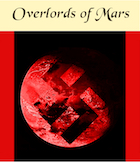At least, that is how I would have to describe Vox’s enthusiastic response to my “theological challenge” if I were using the Western’s zeitgeist concerning the war with evil Russia and how they are now obviously on the ropes.
The Kurgan makes his pre-Vatican II Roman Catholic perspective clear in a recently published article; to which I may or may not respond at some point in the next ten years depending upon my time and interest.
As you can see he’s obviously a hair’s breath away from total conversion!
Be that as it may, and probably surprising to many that read his blog, Vox is actually a very subtle writer, and even subtler reader. I think he admitted it himself as being, if I recall correctly our conversation, a “literary snob”.
Which means the man can both read and write at a level that is today rapidly becoming as rare as finding an original Atlantean. So, totally unwarranted, but driven by my ungentlemanly curiosity, I will take a few of the things he wrote and comment on them.
Evil observably exists. Mankind is observably fallen into evil. The world is observably ruled by an immortal being that hates Man, Jesus Christ, the Good, the Beautiful, and the True. Jesus Christ, the Son of God and the Living Word, is literally and observably the only hope of Man.
And that is the full extent of the theology I am willing to assert and defend.
This, is why I have very little issue with Vox’s theology. In essence, his position is really not that different from the one of millions and millions of illiterate Catholic peasants throughout the ages that were in fact good catholics despite their inability to read or write. And yes, I know how this looks based on the previous paragraphs, but I am not actually taking pot shots. On a personal level, my own theology is not far from this either, with the only added point that, as far as I can tell to date, the REAL Catholic Church, has made no errors in dogma or doctrine, and even those parts I personally resist, or dislike, are objectively better for making as a whole to follow and in fact cause no harm in any case.
That being the case, it is absolutely of imperative importance from my perspective, to make as many people as possible (especially the fooled “Novus Ordo” laypeople) aware of the fact that, actually, yes, an infallible Church does exist, as reason and logic demand, and here it is. And yes it was fought against and infiltrated and also comprised corrupt men from the very start, because, duh: Humans. Do you even READ the Bible? Or LISTEN to the actual Church? They been telling you this from the start too. And yet, every single infiltration, usurpation and attack against it has ultimately failed, the doctrine remained unsullied and in fact more explicit and clarified as time passed, precisely to fend off the further and future attacks, culminating in the saintly and to my view obviously infallible and supernaturally protected Code of Canon Law of 1917, which comprised and summarised EVERY bit of Catholic doctrine, rule and law since Christianity began, all the way to 1917. And since the last valid Pope died on October 9th 1958, whatever other writings he pronounced ex cathedra, could also be added to it. I especially like his encyclical, Mystici Corporis Christi even if the link it’s from is from the current Satanic coven pretending to be Catholic clergy, so perhaps save a local copy before they start editing in how sodomy is part of it all.
The point of agreement I think are likely to be valid for both me and Vox are, aside from his above professed theology, the fact that human beings need rules for civilisation to thrive, as a generic but EXTREMELY statistical significant fact. And by civilisation he and I would both mean something both he and I would recognise as civilised and good and beautiful, despite possible minor details being different.
There are another two points he makes that I think can be seen as quite meaningful. The first:
Nor do I take my own occasional contemplations on the subject terribly seriously; I am from the “glass darkly” school of theological thought.
One can hardly argue with him on this point. In fact, it is a very wise perspective to have. One thing we can ALL be absolutely certain of, is that every single one of us is in error.
I think that once one really begins to appreciate the magnitude and type and kind of error you are in, you begin to be far more likely to think that perhaps, St. Augustine, which Vox is not particularly fond of, mostly, if my memory is correct, or at least in part, because of St. Augstine’s habit of referring to himself as the most miserable of miserable sinners and wretches and so on and on. I get it, when you have a healthy self-esteem, or you build one, as the case may be, for most of your life, you’re not likely to look favourably upon some guy grovelling in a manner that appears to you as some kind of worm-tongue looking to not be squished like the maggot he clearly is.
And that is indeed so.
Until you have a moment before a tiny part of the radiance of God. Or as in my case, and/or people Like Saul/Paul who tend to fall off horses and go blind for a few days when it happens. Then, when faced with the true dimensions of your multiple and seemingly endless errors, you begin to start, to have an inkling of an idea, that perhaps, good old St. Augustine, really did know something about reality. And probably a good fat chunk of it more than you or I.
Since we are ALL in error, it makes logical sense to some degree, that any absolute conviction about Christianity (or Catholicism, as it should be properly called, heh!) must be also in error. And absolute errors are bad, so should be avoided. Kinda.
Because far worse than a categorical and absolute error, is relativism. Putting an innocent man to death, or a young woman, in the case of Joan of Arc, is very, very bad (and in her case done by corrupt evil bastards too, so sort of beside this point), but letting all blasphemy and various crimes of ever escalating violence go unpunished, inevitably results in a failed civilisation, as history continues to show.
The difference, then between Vox’s theology and my own, as I suspected, comes down to the precise things he and I would agree or disagree are non-negotiables.
And I am sure there are some. But probably less than he suspects.
The Catholic Church itself has it as doctrine that while there is such a thing as Papal infallibility (explained many times of this blog, so use the Search Me link on the right if you are not sure what it is) and that the Magisterium of the Church is similarly infallible (hence why the CoCL of 1917 also is, since it was put together by the Magisterium of the Church and approved by two valid Popes), the Church itself is NOT necessarily always infallible.
There are doctrines that are deemed to be absolutely and forever unchangeable, of course, known as divine doctrine, as they come straight from God and there really is no question about them, or are evidently simple to understand and extrapolate from such rules (the idea of non-catholics not being valid catholic clergy being an obvious one) but other rules might just be for the running of the Church or apply in almost but not all cases and so on. A deep understanding of Roman law and Catholic doctrine may be required for some of these, but in essence the Church clearly states that ultimately, the only true infallibility comes from God.
Which is not to say that infallible doctrine might be flawed, but rather, that humans within the Church can and do make plentiful errors as well as some making consciously and known heretic attacks on it.
One of the points Vox makes that could be construed as a criticism is this:
My chief criticism of all theology and all theologians is this: they tend to artificially narrow the art of the possible, by which I mean they usually assign divine significance to one of several possible interpretations of a phrase – often a phrase that has already been translated one or more times – and then deny all potential legitimacy to the other possible interpretations.
I don’t really have any objection to this point, and I think Vox may have it possibly as being more familiar with the endless squabbling that goes on amongst Protestant theologians. But in this respect, it could possibly be applied to the idea that Peter was not only the leader of the Apostles but also the first Pope and the Rock upon which the Church is built, and what follows from it, as I explained in my original post from which this one stems from.
But the fact is that as far as I am concerned, the whole “Peter is the Rock” thing is absolutely not limited to one quote from the Bible. This attitude of selecting a tiny piece of text from the Bible and then applying it patch-work style to whatever nonsensical idea your average protestant is trying to defend, is really a Protestant hobby, not so much a Catholic one at all. And when I say Protestant, I include the fully Protestant, satanic Novus Orco Vatican II fake Church.
Peter being the Rock is borne out by not just one or two lines in the Bible, but several passages taken in context, as is the entire 2,000 year history of the Church. Christianity literally would NOT EXIST without THAT specific interpretation of it. And even more stunningly, is the fact that the Catholic Church is literally the LONGEST form of reign that has EVER taken place in the entirety of known human history. All the attacks against it ultimately failed. Including the Arian heresy during which 97% to 99% of ALL then existing bishops subscribed to it. Or as the current era when out of nearly 2 billion nominal “Catholics” there are maybe say a million Sedevacantists. This crisis too will pass. Because either the Catholic Church is true and real and infallible, as it has proven itself to be for two millennia if you bother to really look into it, or it is not, in which case ALL of Christianity is a complete fairy tale. Which happens to be what I USED to believe for over 40 years of my life.
The inescapable conclusion I make, is based not on this one, or that other single scarp of evidence, or quote, or Biblical sentence, or other evidence in its singular form. No, my conclusion is based on the absolutely overwhelming totality of evidence that:
- Catholicism created the absolute best conditions for human beings bar none in the entire history of mankind we know of.
- Catholicism in the main and almost alone in this was responsible for the creation of the actual, valid, real scientific method that ultimately created science, engineering and so on, and this was done precisely because Catholic doctrine hinges of God being a Loving, Just, Merciful and LOGICAL God. That is, reason is a thing. And that theological concept meant that the Universe could be studied and greatly understood. Protestantism both thanks to the explicit statement of Luther that “Reason is the whore of the devil” and the abundantly clear and obvious evidence presented by Protestants in general, rejects reason entirely. It’s all about the feels and possibly some foggy notion of following “God-breathed” theology, which is unfortunately indistinguishable from pastor-con-man-grifter farted theology.
- Catholic doctrine and dogma did this and I can find no flaw or fault in it once I properly examined any specific dogma or doctrine as it actually is, instead of how people might tell you it is.
- Catholicism literally is Christianity and “Christianity” that is not Catholicism:
- Would not exist at all without Catholicism, since they are all bastardised and corrupted offshoots of Catholicism, first split-off in this specific manner by the fat German maid-raping, nun-banger, Martin.
- Secondly has DEMONSTRABLY created a far worse lot for humanity, since it has slowly and consistently corroded Catholicism to the point that now we have accepted as a general, global whole: sex before marriage, contraception, divorce, and ultimately baby killing (abortion). And now have shifted on to “transgenderism” and tranny “bishops” in Protestant Covens oh… sorry… “Churches”.
- And that’s just to scratch the surface. Keep in mind about 500 years ago, Jean Parisot Le Valette beat a man nearly to death for blasphemy and he did only four months in jail.
In 1538, while on Malta, Valette was sentenced to four months in a guva (a hole in the ground) on Gozo for nearly beating a layman to death, and he was subsequently exiled to Tripoli for two years to serve as military governor. Upon his return he was punished again for bringing a negro slave not liable for servitude.
As you can see, even back then, Catholicism was way ahead of the rest of the world on even things like slavery.
In short, and to clarify, my position on Catholicism does not hinge simply on Matthew 28:18-20, but on, as I said, a staggering preponderance of evidence, of which the above are really just the highlights.
This is also the reason why I remain interested in further investigating the issue. If I were utterly closed to the concept, as many assume, I would not care to. And in truth, in MANY aspects of “Christianity” I have zero interest left in “exploring” the issue. Not because I am “closed off” but because those particular rabbit warrens have been thoroughly excavated, mined and blasted and there is simply nowhere else to go.
Catholicism (the sedevacantist one, which is the original one) is the truest philosophy of reality bar none that I have found to date. And it is so by many, many, many light years of distance from the next truest thing I had found up to then, which was a mixture of semi-Shintoists, Zen-Agnosticism, with elements of Feudal Japanese Samurai philosophy.
And surprising as the revelation of actual Catholicism being absolutely true AND the best descriptor of reality was to me, it remains the case. And the reason it was so surprising was because essentially, EVERYTHING I thought I knew about Catholicism was actually a carefully crafted network of absolute lies concocted by various “Christians”. What I thought was Catholicism, was in fact “Catholicism” or Novus Orco “Christianity” which is absolute Satanry of the worst sort. And of which, Protestantism was its initial offshoot of evil intended to pervert and twist.
So, there are some of my clarifications.
I look forward with baited breath to Vox’s additional, en passant, coincidental, possibly related, commentary on same, in the next fifteen to twenty years; probably without fail!







Peter being the Rock is easy because it’s scriptural. The real jump I have trouble with is how that translates to perpetual supremacy of the Bishop of Rome over the other Bishops. That also, of course, being a large contribution to the Orthodox schism (although I am not Ortho, I am interested in Church history).
Heck, scripturally, you had the Bishop of Jerusalem James presided over and basically laid down the law, with Peter present, at the meeting in Acts 15.
Perhaps I’ll see if you touch on this in your referenced posts, when time allows.
I don’t see what the issue is. Peter and subsequent Popes always had pride of place and ultimate say over all the other Bishops. Read up on it. The Bishop of Rome always was the tie breaker in any decisions. It is obvious and logical and again, follows LOGICALLY from Peter being the rock and ANY organisation being one that can last in time if the final decision stops with one guy instead of a committee. I (again) felt this was fairly obvious from my post, especially since, as I say, it is a historical fact.
As with ALL historical facts of the Church, gnostics, heretics and deceivers have tried to attack the unassailable, and because people are morons, after each attack the Church has had to spell out what up to that point was obvious and accepted by everyone. Much like now we have to state clearly that there are only two sexes.
As for Acts 15, again, what is the issue? Any Bishop in his diocese can and should lay down the law and if that law is in keeping with correct doctrine, the living, valid Pope, isn’t going to object or even interfere, and given that a (valid) Pope is supernaturally protected from error, another Bishop might even argue a point with a Pope (as some contend Paul did with Peter) and the truth would be the one that wins, since officially regarding doctrine, a Pope cannot make an error.
Choosing a single man as His focal point is something God has done repeatedly in the Old testament, the Patriarchs, the prophet Moses etc’.
Choosing The apostle Peter as The rock of His church is, dare I say… standard procedure.
P.S If you were a betting man, which would you wager to arrive first, a replay from Vox or A Sea of Skulls?
Well, I did tell him back in I think 2014 that I expected Sea of Skull out by say 2025, and I think his response was “f you”, but now I’m wondering if that was due to me stating and unreasonably near date…